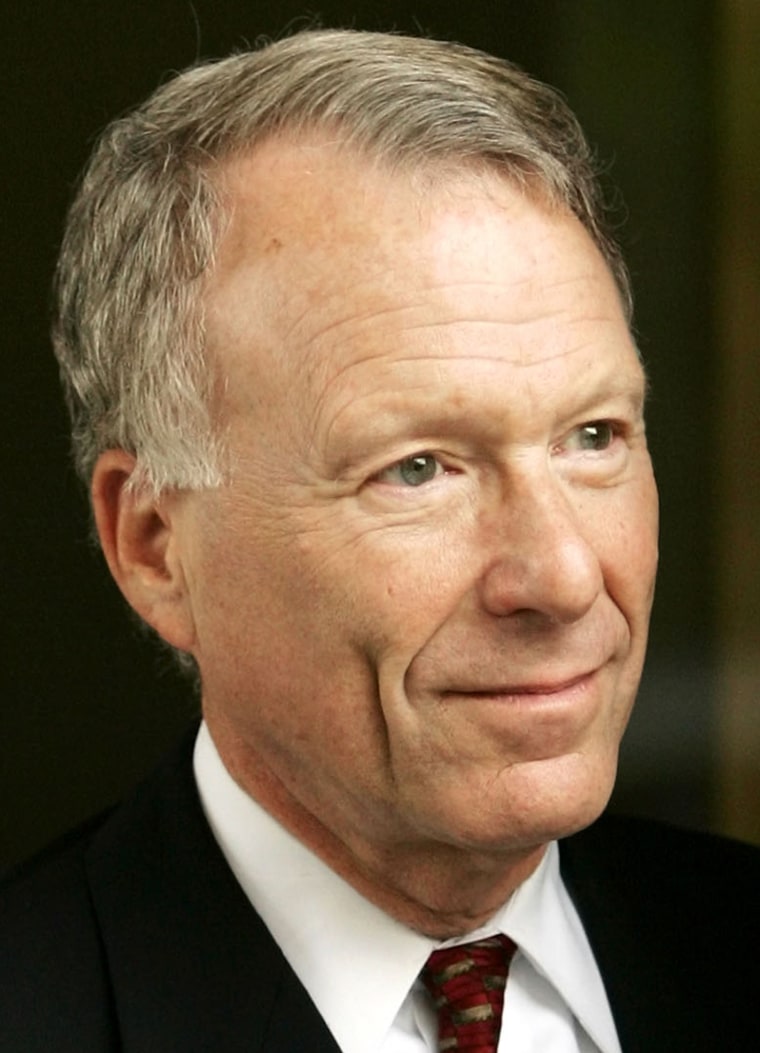A key to the defense strategy for Vice President Cheney's former chief of staff, I Lewis "Scooter" Libby - that the pressure of his job at the White House caused Libby to "misremember" conversations about Valerie Plame to reporters - was put in question today during a pre-trial hearing on whether a memory expert would be admitted to testify on Libby's behalf.
Libby's lawyers contend that issues of memory, including how memory works and why it fails, will be crucial to the jury's determination of Libby's guilt or innocence.
Special Counsel Patrick Fitzgerald vigorously cross-examined Dr. Elizabeth Loftus, a memory expert and defense witness at the procedural hearing. Loftus, the first witness to appear in the case, testified in support of a motion by Libby's attorney that Dr. Robert A Bjork, the chairman of UCLA'S psychology department, should be admitted as an expert witness at trial.
Perception of guilt or innocence
Fitzgerald's blistering, nearly three-hour, questioning of Loftus caused her to admit that some of her own findings about what juries know about memory were faulty and that some of her own research may have been flawed.
Quoting from her own book "Witness for the Defense," Fitzgerald also confronted Loftus about how she might sway a jury if called to testify at trial. She had written that, "using my arsenal of subtle psychological tools" Loftus could make an impression on a jury about her perception about guilt or innocence.
Libby lawyer John Kline put Loftus on the stand to explain to Judge Reggie Walton - who must decide on whether to admit Bjork - that Loftus's 2006 study, based on a survey of 1000 D.C. jurors, found that most of those surveyed thought that memory could be likened to a "tape recorder." The perception the mind can remember like a recording device is not true according to some memory experts.
But Fitzgerald pointed out in his cross-examination that the study itself may have been skewed. Loftus admitted on the stand, after being picked apart by details from her own works, that the answers to some of the questions posed to jurors in the study actually prove exactly the opposite - that jurors can in fact use common sense to ascertain the effects of memory on witness testimony.
Misremembering details
The courtroom drama during the hearing provided the first glimpse of what may emerge in January when the Libby trial is scheduled to begin.
Throughout the hearing Judge Walton expressed skepticism on the findings of Dr. Loftus, suggesting that juries would not be able to use simple common sense in determining the effect of memory on the testimony of trial witnesses.
One finding in the work of memory experts is that, when interviewed as a group, jury's understanding of how memory is involved in trials actually improves. Walton asked, "could the jury deliberations make it more right?" Lofus reluctantly admitted to the judge that it could.
Politics of Iraq?
Libby is charged with five felony counts of perjury, obstruction and making false statements to the FBI.
He is accused of lying about how he learned of Plame's CIA employment and what he told reporters about her when her husband, former U.S. Ambassador Joseph Wilson, was accusing the Bush administration of twisting prewar intelligence to help sell the public on waging war against Iraq.
Libby's lawyers argue that Dr. Bjork's testimony may shed some light on why the pressure of his White House job, "could have easily caused him to confuse or misremember minor details of conversations about the former Ambassador's [Joe Wilson's] wife and her job at the CIA - topics Libby did not consider significant at the time."
Fitzgerald says a memory expert would be, "confusing, misleading and prejudicial," and would unnecessarily delay the proceedings. Today's witness also admitted that there have been no studies conducted on how memory effects past conversations.
Libby's trial is scheduled to begin on January 15, 2007.
Joel Seidman is an NBC News producer based in Washington.
